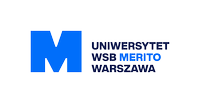Library
A library is a collection of sources of information and similar resources, made accessible to a defined community for reference or borrowing. It provides physical or digital access to material, and may be a physical building or room, or a virtual space, or both. A library's collection can include books, periodicals, newspapers, manuscripts, films, maps, prints, documents, microform, CDs, cassettes, videotapes, DVDs, Blu-ray Discs, e-books, audiobooks, databases, and other formats. Libraries range in size from a few shelves of books to several million items. In Latin and Greek, the idea of a bookcase is represented by Bibliotheca and Bibliothēkē (Greek: βιβλιοθήκη): derivatives of these mean library in many modern languages, e.g. French bibliothèque.
Library Science
Library science (often termed library studies, library and information science, bibliothecography, library economy) is an interdisciplinary or multidisciplinary field that applies the practices, perspectives, and tools of management, information technology, education, and other areas to libraries; the collection, organization, preservation, and dissemination of information resources; and the political economy of information. Martin Schrettinger, a Bavarian librarian, coined the discipline within his work (1808–1828) Versuch eines vollständigen Lehrbuchs der Bibliothek-Wissenschaft oder Anleitung zur vollkommenen Geschäftsführung eines Bibliothekars. Rather than classifying information based on nature-oriented elements, as was previously done in his Bavarian library, Schrettinger organized books in alphabetical order. The first American school for library science was founded by Melvil Dewey at Columbia University in 1887.
Science
Within the short span of a human life and with man's limited powers of memory, any stock of knowledge worthy of the name is unattainable except by the greatest mental economy. Science itself, therefore, may be regarded as a minimal problem, consisting of the completest possible presentment of facts with the least possible expenditure of thought.
Ernst Mach, The Science of Mechanics: A Critical and Historical Account of Its Development (1893) p. 490, Tr. Thomas J. McCormack.
Science
I can appreciate the beauty of a flower. At the same time, I see much more about the flower than he sees. I could imagine the cells in there, the complicated actions inside, which also have a beauty. I mean it’s not just beauty at this dimension, at one centimeter; there’s also beauty at smaller dimensions, the inner structure, also the processes. The fact that the colors in the flower evolved in order to attract insects to pollinate it is interesting; it means that insects can see the color. It adds a question: does this aesthetic sense also exist in the lower forms? Why is it aesthetic? All kinds of interesting questions which the science knowledge only adds to the excitement, the mystery and the awe of a flower. It only adds. I don’t understand how it subtracts.
Richard Feynman, in BBC Interview (1981)
Science
Alas! A scientific man ought to have no wishes, no affections — a mere heart of stone.
Charles Darwin, in a letter to T.H. Huxley, 9 July 1857, More Letters of Charles Darwin, Francis Darwin and A.C. Seward, editors (1903) volume I, chapter II: "Evolution, 1844-1858", page 98.


